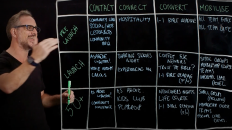A fruitful discussion is being had on
Hans’ blog about the place of ‘excellence’ in ministry. It’s a
challenge for us to find the correct conceptual, moral and spiritual
‘place’ to put ‘excellence’. As the evasive theologian says: “More
work needs to be done here”.
I appreciated these two comments very much:
In my experience, mediocrity and slackness are often an
almost unavoidable result of brokenness and being a ‘jar of clay’.No minister that I knows sits down on a Monday morning and says, ‘this
week I’m going to be slack with my sermon prep.’ More likely what will
happen is that things will get hard – they’ll be conflict or criticism
or sadness or something at church or at home and the exhaustion will
accumulate and as a result the minister will find it really hard to
motivate himself to give 100% to the sermon prep for a while.
Slackness is a result of the jars-of-clay situation. Not something
separate to it.
From Stuart Heath:
I don’t think you have to do ‘your best’, and certainly
not on sermon prep every week. As Simone notes, there are lots of
other things to do. Apart from all the responsibilities you have
outside working hours, there’s a lot of ‘equipping the saints for
works of service’ outside sermon prep. If you do ‘the best’ sermon you
can every week, you’ll likely be sacrificing other responsibilities.Meanwhile, a brief reflection on ‘excellence’ in general. Firstly, in
any normal sense of the word, I don’t think ‘excellence’ can mean
‘faithfulness’ or ‘trying hard’. It means doing something really well.
It’s quite possible to be faithful and try very hard and to have a
result which is well below excellence.Secondly, as a general rule, I don’t think we’re called to do ‘the
best’ thing; we’re called to do ‘a good’ thing.Some tasks (like heart surgery or playing in an orchestra) require
excellence. If they are less than excellent, they are also less than
good. The vast majority of us don’t have the ability to be excellent
at these things; we shouldn’t try, because (a) we’ll end up hurting
people and (b) we would be wasting time that we could have spent in
some other ‘good’ pursuit.Many tasks, however, can merely be ‘good’. For example, for a range of
reasons, I will never be an excellent English teacher. But I’m
competent; I’m ‘good enough’.



